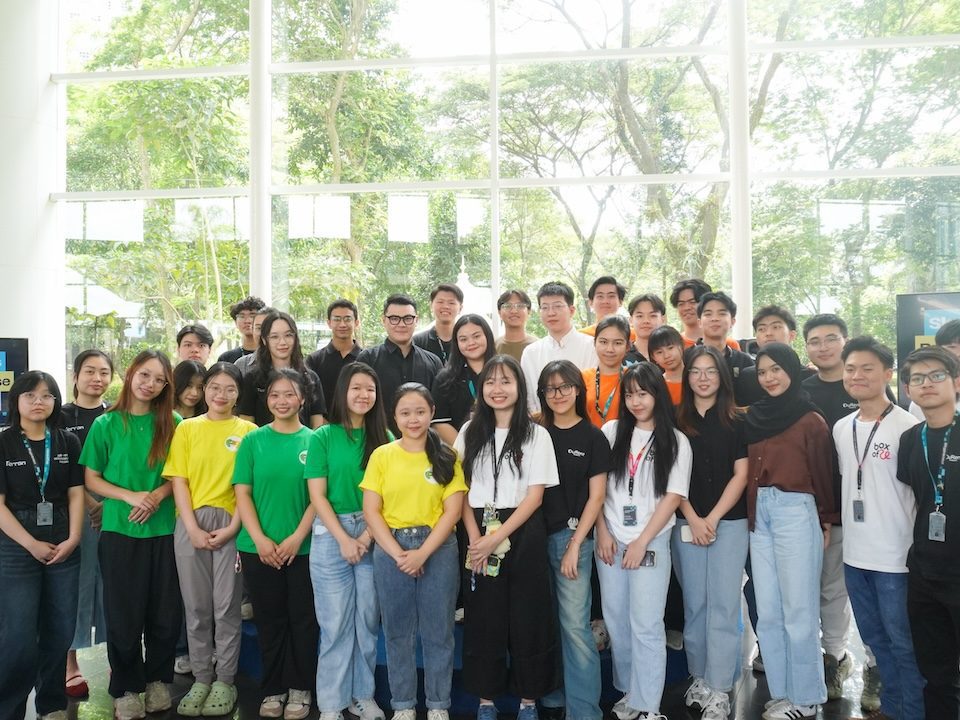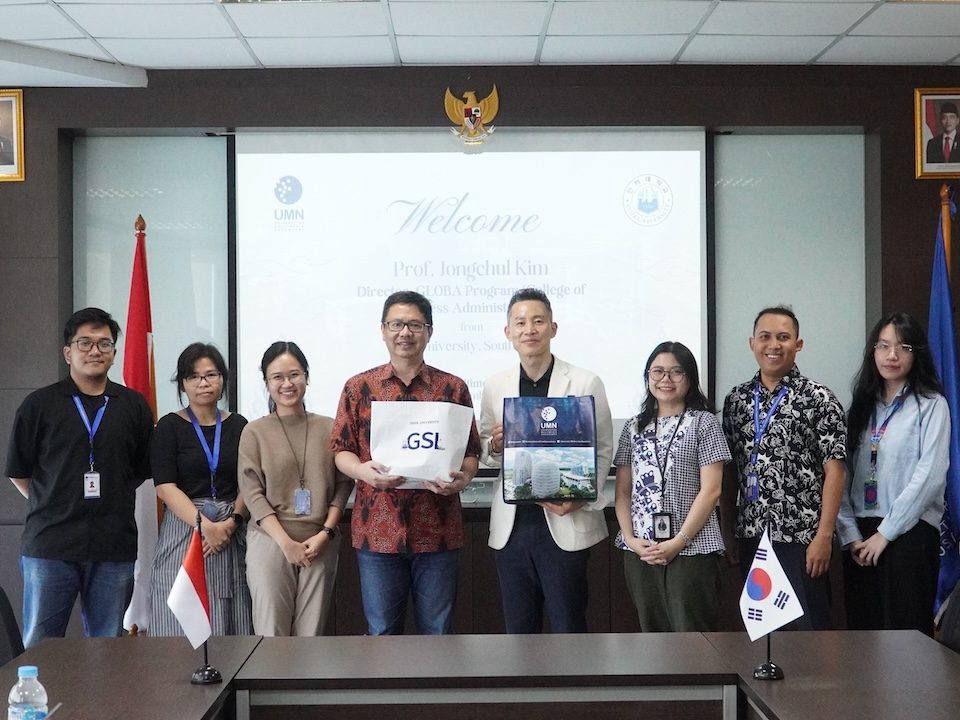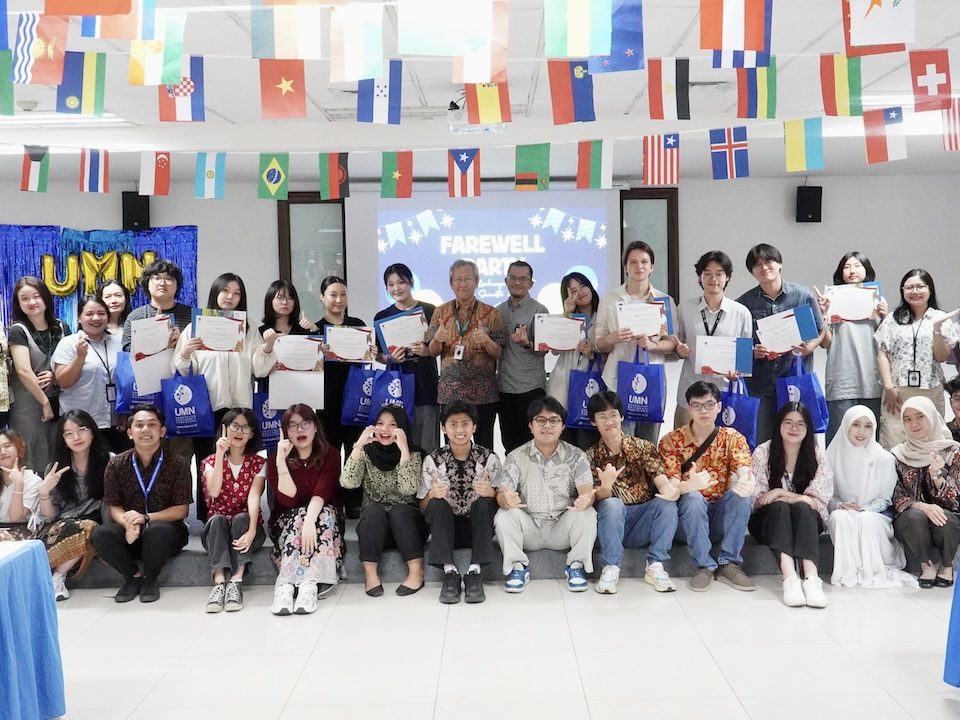
Anutara Organizes Crochet Class with Emji
December 7, 2024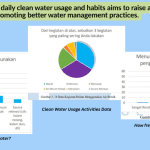
Educating Local Communities for Better Water Management in Jakarta Barat and Jakarta Utara
December 10, 2024Local education programs and campaigns play a vital role in raising awareness about climate change risks, impacts, and mitigation strategies. In addition, collaborative planning with government agencies is essential to prepare for climate-related disasters, including potential displacement of communities. Together, these efforts strengthen resilience and support effective adaptation at the local and regional levels.
Creative Learning Tools Help Students Prepare for Disasters
As part of the collaboration with the Lebak Selatan Disaster Mitigation Task Force (GMLS), Universitas Multimedia Nusantara supported the development and distribution of two educational tools: the Sobat Siaga Tsunami Pocket Book and the Disaster Preparedness Kit (Tas Siaga Bencana). These tools were designed to make disaster education practical, child-friendly, and easy to understand. The pocketbook includes key information such as signs of an incoming tsunami, early evacuation steps, and a simple explanation of natural disasters, helping children become better prepared and more alert in emergency situations.

(GMLS Doc., 2024)
To support the book, a fun and interactive education session was held at SDN 3 Situregen with 5th grade students. Through activities like treasure hunts, singing, and coloring tsunami inundation zones directly on their preparedness bags, students learned about evacuation zones, tsunami risk areas, and how to act quickly during emergencies. These activities show how creative learning methods can build awareness and reduce disaster risk at the local level—making young people active agents of change in climate action and community resilience.
Creative Workshop Builds Local Awareness on Tsunami Preparedness
To raise local awareness on tsunami risks and disaster readiness, a workshop titled “Nyegah Bala Laut” was held in Situregen Village on November 16, 2024. The event brought together students from Universitas Multimedia Nusantara (UMN), the South Lebak Disaster Mitigation Task Force (GMLS), and local youth groups including Karang Taruna and the Disaster Risk Reduction Forum (FPRB). Through creative shirt design activities, participants used visual storytelling to communicate early warning signs, evacuation tips, and local knowledge on tsunami risk.

(GMLS Doc., 2024)
The workshop was designed to make disaster education more engaging and community driven. By involving young people in hands-on learning, the program helped foster stronger connections between local wisdom and modern disaster mitigation strategies. This initiative is part of a broader climate action effort that supports public awareness, local education, and long-term resilience in vulnerable coastal areas. See the documenter video posted by Lebak Selatan Disaster Mitigation Task Force (GMLS).
Collaborate to Empower Local Community in Mangrove Conservation and Climate Education
Universitas Multimedia Nusantara (UMN), in collaboration with Multimedia University (MMU) Malaysia, has launched a community program to support mangrove conservation in Lembur Mangrove Patikang, Pandeglang, Banten. The program educates local residents on the vital role mangroves play in climate change mitigation and adaptation, such as protecting coastlines from erosion and absorbing carbon dioxide. By actively involving the community, the initiative helps raise awareness and builds local capacity to face climate risks and reduce their impacts.
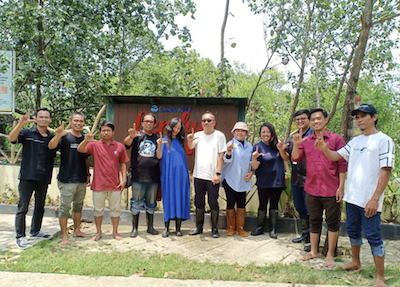
Through workshops and training sessions, UMN and MMU guide the community in developing sustainable mangrove-based ecotourism. This approach not only strengthens environmental resilience but also creates economic opportunities for local residents. The program demonstrates how universities can play a meaningful role in climate action by combining academic knowledge with practical, community-driven solutions.
Bridging Theory and Practice: UMN Students Learn Climate Resilience in Bayah

The UMN Student Mobility Program 2024 brought together students from several universities to Bayah, Banten, where they explored the local community’s approach to disaster risks and climate resilience. During the visit, participants learned about the causes and impacts of natural disasters, practical mitigation strategies, and ways to adapt to environmental challenges. This hands-on experience provided valuable insights into how local communities face climate-related risks and highlighted the importance of sustainable practices in reducing vulnerability. Watch the recap posted by Lebak Selatan Disaster Mitigation Task Force (GMLS).
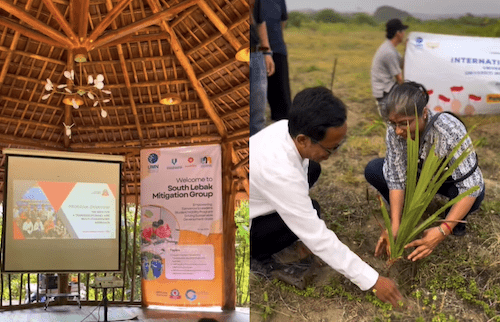
By combining academic learning with real-world exposure, the program fosters deeper understanding and awareness of climate action among students. It also demonstrates the vital role that universities play in preparing future leaders to address environmental challenges proactively. Through such initiatives, UMN continues to build a culture of sustainability and resilience, empowering its students to become agents of positive change in their communities and beyond.
Enhancing Environmental NGOs’ Capacity Through Data-Driven Campaigns for Climate Adaptation
Addressing the increasing complexities of climate change requires strong collaboration between government, academia, and civil society organizations. One strategic initiative undertaken is the community service project titled “Capacity Building on Data-Based Campaigns and Data Management for Environmental NGOs in Bandung.” This project focuses on empowering environmental NGOs, which play a crucial role in policy advocacy and climate adaptation program implementation. By leveraging accurate and well-managed data, NGOs can optimize their campaigns to effectively influence policy changes and drive concrete actions on the ground. Data serves as a critical foundation to ensure adaptation strategies are not only relevant but also supported by strong evidence tailored to local and regional needs.
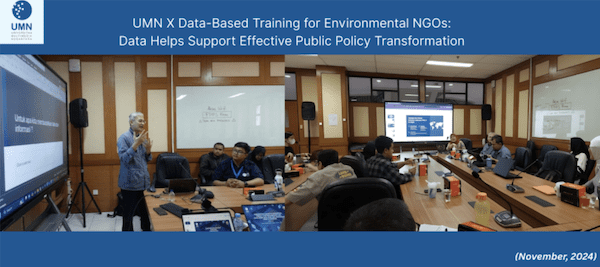
The importance of a data-driven approach lies in the highly localized and context-specific nature of climate risks. In Bandung, for example, rising temperatures, increased rainfall intensity, and frequent flooding directly affect communities and ecosystems. Equipped with data management skills, NGOs can precisely map these risks, estimate potential impacts, and design targeted and measurable adaptation campaigns. This fosters more effective collaboration between NGOs and local governments to develop responsive and sustainable adaptation policies. Ultimately, this training strengthens the capacity of civil society organizations and builds a solid foundation for inclusive, impactful, and long-term climate adaptation.
Eco Enzyme Program Empowers Serdang Wetan Community to Reduce Environmental Impact
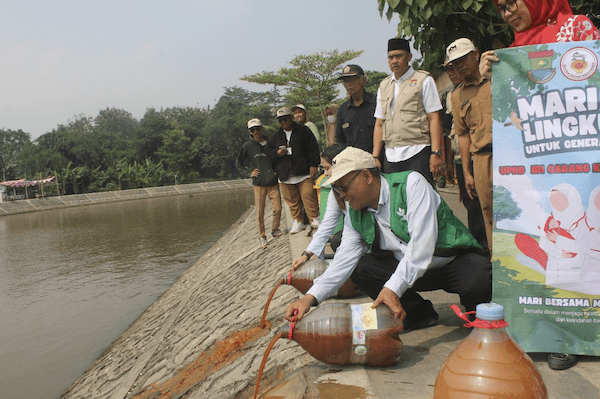
Universitas Multimedia Nusantara (UMN), in collaboration with the Tangerang Regency Government, launched the Sehati Program to help maintain the environment of Serdang Wetan Village, Legok District, Tangerang Regency. This initiative aims to improve the water quality of the local lake using eco enzyme solutions, directly reducing pollution, and protecting the ecosystem. The program actively involved the community, including 36 schools—seven elementary and 29 junior high schools, encouraging students and residents alike to take part in caring for their environment.
By addressing pollution and promoting sustainable habits, eco enzyme activity plays an important role in impact reduction. UMN’s Innovation Center Department’s Fenisa Lourence highlighted that spreading eco enzymes supports better environmental outcomes and enhances quality of life in an eco-friendly way. This initiative demonstrates how community engagement can drive climate action by reducing environmental harm and empowering people to become active stewards of their surroundings.
Empowering Local Resilience Through Student Involvement in Disaster Mitigation
In 2024, students from Universitas Multimedia Nusantara (UMN) completed an internship with Gugus Mitigasi Lebak Selatan (GMLS), gaining hands-on experience in disaster mitigation, tsunami preparedness, and building community resilience. This practical training was vital for helping communities anticipate natural disasters and minimize harm. By actively participating, students helped raise awareness and strengthen local readiness, contributing to safer, more resilient communities.
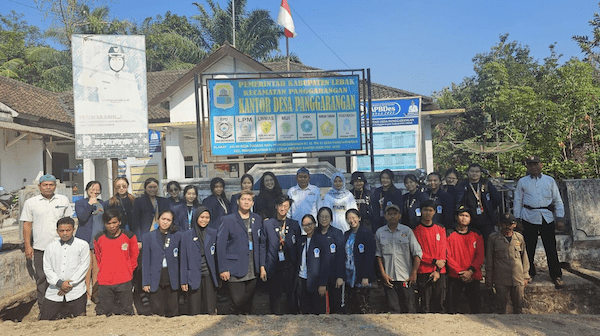
(UMN Doc. 2024)
GMLS successfully implemented the Community Resilience Program in Lebak Selatan, collaborating with universities and partners both domestically and internationally. The organization also achieved the Tsunami Ready certification based on 12 key indicators, marking a significant milestone in disaster preparedness. This accomplishment reflects impactful climate action by empowering communities to face environmental risks and protect lives through education and collaboration. Find out the recap published by GMLS.
Using Data Science to Improve Disaster Preparedness in Indonesia
Universitas Multimedia Nusantara (UMN) has launched a new program that uses data science to help communities prepare for disasters better. This program teaches students how to create disaster information systems that show risk maps, weather data, and early warnings. With support from the Ministry of Communication and Information Technology and the Digital Talent Scholarship, students gain real skills to build tools that can save lives and reduce damage when disasters happen.
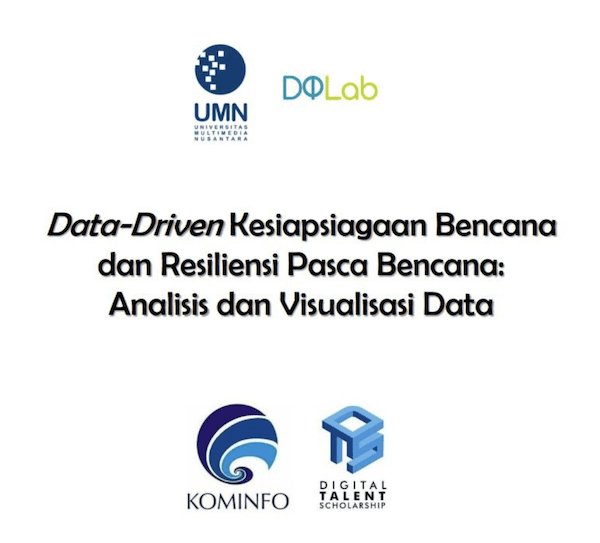
Training Program initiated by UMN. (Doc. UMN)
The program not only trains future experts but also helps strengthen disaster resilience across Indonesia. By combining technology with education, UMN shows how smart data use can protect people from climate-related risks. This approach supports stronger, safer communities and highlights the power of innovation in fighting climate change.

